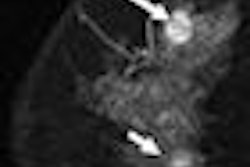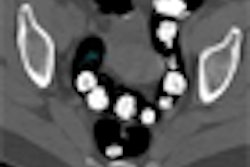A recent study at Columbia University Medical Center in New York City showed that the use of iodinated contrast material may be less damaging to the kidneys than previously reported.
Dr. Jeffrey Newhouse, lead author of the study, said researchers reviewed patient records to determine the frequency and magnitude of serum creatinine changes in patients who had not received iodinated contrast material. The data were compared to previously published articles that found a relationship between contrast media, serum creatinine levels, and nephropathy.
The Columbia study found that creatinine level increases as often in patients who do not receive contrast material as in patients who do.
Among 32,161 patients who had not received contrast material, more than half showed a change of at least 25% and more than 40% showed a change of at least 0.4 mg per dL. The changes occurred in patients with both normal and abnormal initial creatinine values and were caused by the entire range of conditions, treatments, and laboratory variations that may alter creatinine levels, Newhouse noted.
The changes were no different from the results in previously published studies in which the patients received contrast media. The study will be published in the August issue of the American Journal of Roentgenology.
Related Reading
Clinically significant contrast-induced nephropathy rare, May 14, 2008
Contrast agent osmolality makes no difference in PCI of renal disease patients, April 17, 2008
Automated patient-based contrast application cuts CTA contrast volume, risk, March 7, 2008
GFR no better than creatinine for predicting renal failure, December 18, 2007
Sodium bicarbonate best for prevention of contrast-induced nephropathy, October 29, 2007
Copyright © 2008 AuntMinnie.com



















